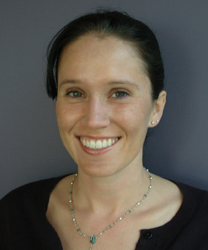Carolyn M. Audet, PhD
Dr. Audet received her Bachelor degree in an Independent Concentration she created, New World Civilizations, from Princeton University. After graduation, Dr. Audet travelled to Belize where she worked for the Ministry of Tourism and Culture to excavate, consolidate, and analyze ancient Maya cities. She returned to graduate school at Vanderbilt University with a focus on human behavior, power dynamics, and political rituals, and received her Ph.D. in Anthropology in 2006. While at Vanderbilt, Dr. Audet’s research interest shifted from the dead to the living. She began working in Uganda and Kenya overseeing several service learning programs with a focus on HIV, health care delivery, and poverty. These new experiences inspired her research on women abandoned by their partners due to their HIV status in Kampala, Uganda. In 2008 she joined the Institute for Global Health at Vanderbilt University and began research on barriers to HIV testing and treatment uptake in rural Mozambique. In 2013, she completed her M.Sc. in Epidemiology at the London School of Hygiene and Tropical Medicine. Specifically, her research has quantified the time delay associated with undiagnosed but symptomatic people first visiting a traditional healer before attending clinic, highlighting the importance of working with traditional healers to refer and manage the care of HIV positive patients in rural areas. She has also developed a program to change social norms about male engagement in antenatal care delivery, including HIV testing, in rural areas of Mozambique. Leading to increased couples counseling rates from 6% to over 35% among pregnant women from 2011-2013. She has participated in and published research on barriers to HIV testing and treatment uptake, validated scales of HIV stigma in Nashville and gender based inequality among men in Mozambique, and documented the challenges and benefits of working with traditional healers to improve health outcomes.
